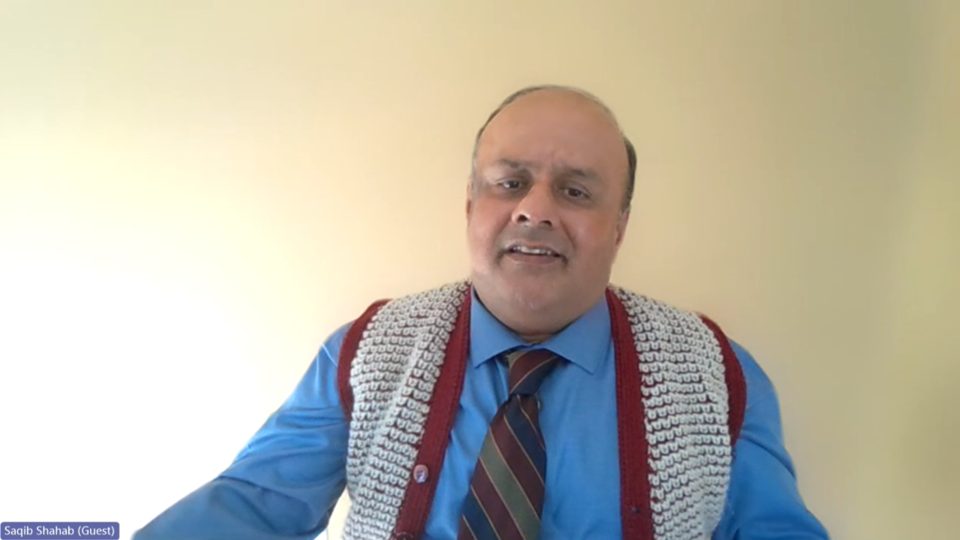REGINA — Saskatchewan’s top doctor revealed that the province will be scaling back it’s public health supports for testing and reporting on COVID-19 cases as early as Monday, in a transition to long-term COVID management.
Beginning on Feb. 7, residents will no longer be able to access PCR testing on a widespread basis, as it will only be made available to priority or at-risk individuals through HealthLine 811.
COVID-19 testing and vaccine clinics operated by public health will be closing gradually over next week, and daily updates through the provincial COVID-19 online dashboard will cease and data will be archived, as officials switch to providing weekly summary updates.
During a media appearance on Feb. 3, chief medical health officer Dr. Saqib Shahab said that the decision to pull back on testing, vaccination and reporting cases daily is not too soon, but being made at the “correct time.”
“This is similar to what other provinces have already done,” said Shahab.
Individuals will have to evaluate their own personal risks when making the decision to go out in public, said Shahab and that this shift in approach will help the public transition to “live with COVID on an ongoing basis.”
“I recall saying three to four weeks ago that we needed to minimize the non-essential contact [but] I think the situation has evolved,” said Shahab. “It doesn’t mean we should throw out all caution.”
Officials said that the province feels confident that residents have the appropriate amount of tools to allow them to self-assess risk and self-manage the virus, similar to other communicable diseases like influenza.
According to data presented by Shahab, less than one per cent of positive cases are resulting in hospitalizations at this time, and patients are reporting that illness from COVID-19 is lasting around 5-7 days.
Dr. Julie Kryzanowski, deputy CMHO, said that the changes in COVID management at the government are not likely to increase transmission, but will instead preserve the capacity of public health resources.
“Taking a step back though every other wave of the pandemic, public health [does] rely on population behaviour change, to make meaningful differences in population health status,” said Kryzanowski. “We need enough people who are doing enough of the things that will limit community transmission.”
Shahab indicated that reducing PCR testing and daily reporting of cases goes hand-in-hand, as previous scale-backs in PCR testing have made daily case numbers an inaccurate representation of transmission reality.
“Our reporting has to change because the data we relied on for the bulk of our reporting, case numbers, is no longer reliable,” said Shahab. “I think based on that, now is the correct time [to do this].”
“I think we have to get over the habit of going to the dashboard first thing in the morning [to check cases, and] it will be a challenge to get used to the new normal.”
Shahab said that lab partners in the province and nationally will continue to monitor COVID-19 in the future, and alert public health if potential concerns arise.
Public health officials will continue to track trends in Saskatchewan for weekly updates, using data from private testing labs, wastewater analysis, reporte school absences and hospitalizations.
“I think we have evolved our approach to managing on the ground,” said Shahab.
When asked repeatedly if he agrees with statements made earlier in the week by Premier Moe that vaccination does not prevent contraction of COVID-19, which have been challenged as inaccurate by Saskatchewan virologists, the CMHO did not provide a straight answer.
“Vaccines, mask use and other preventative measures have been critical, as well as isolating if you’re sick, but obviously this will continue to evolve,” said Shahab.
He said that comparing daily case numbers and scientific studies can “lead to an interpretation that is different,” and noted that recent studies on Omicron have reported that two doses protect against infection but efficacy wanes after three months.
“I think there’s a different role for vaccinations in preventing serious outcomes and a lesser role with Omicron and reducing transmission and self-reliance on other public health measures,” said Shahab.
He also declined to share what recommendations he has been providing to government during recent discussions about removing public health orders, saying he did not want to “speak on behalf of elected officers or the Premier.”
Shahab did express support for the retention of current public health mandates for the time being, however, which Moe has said he is considering removing before the end of the month, specifically the proof of vaccination policy.
“At the moment, everything we have been doing as Saskatchewan residents is having an impact,” said Shahab. “But I think we do need to acknowledge that we are in a better place and we need to stay the course for now.”
Interim chief operating officer Derek Miller from the Saskatchewan Health Authority confirmed that the SHA will continue to “promote individuals completing their[vaccine] series and getting their booster shot” in the future.
The SHA activated a mandatory COVID-19 vaccine policy in November, requiring all employees to report their vaccination status or submit regular negative test results to work in SHA facilities.
Shahab encouraged residents to continue following masking and isolation orders, taking personal safety precautions, and making efforts to seek full vaccination.
“If we ourselves are at low risk, it’s really important to shield those that are at high risk,” said Shahab.




